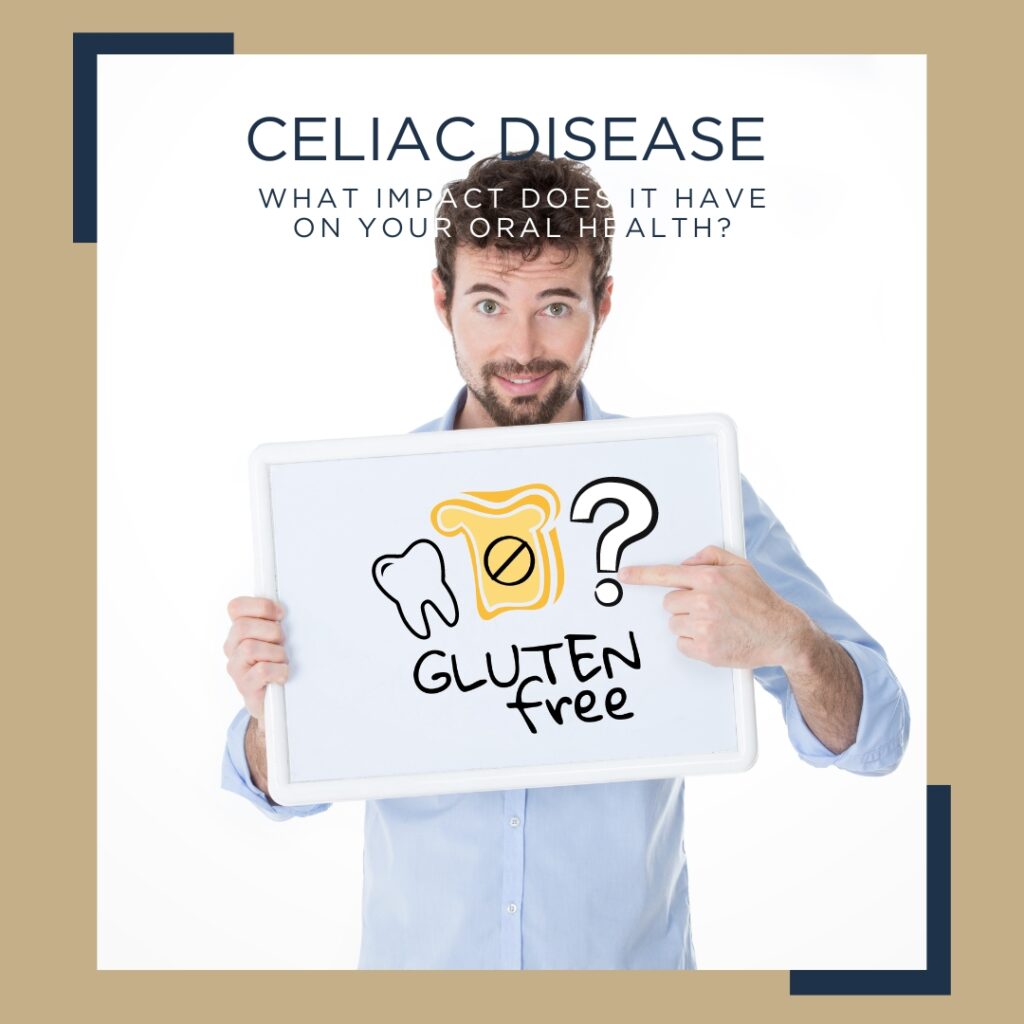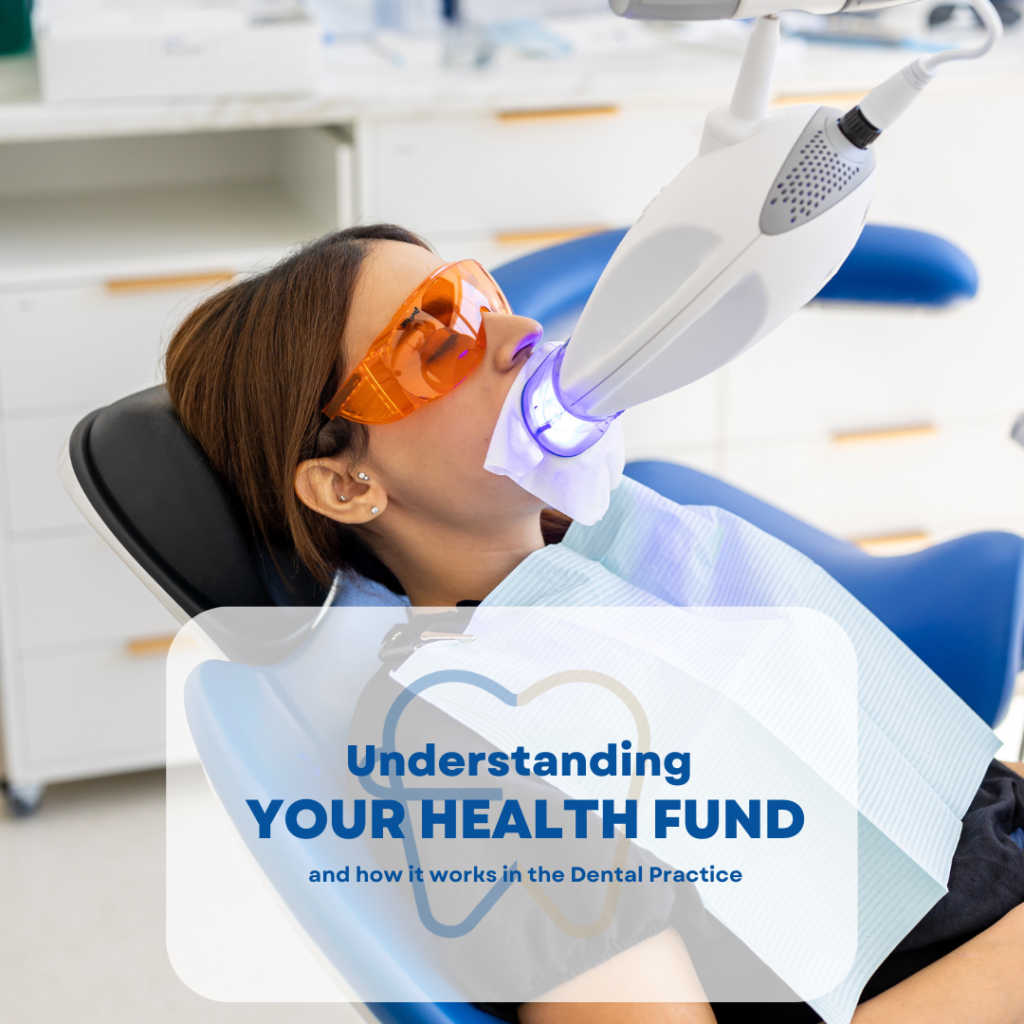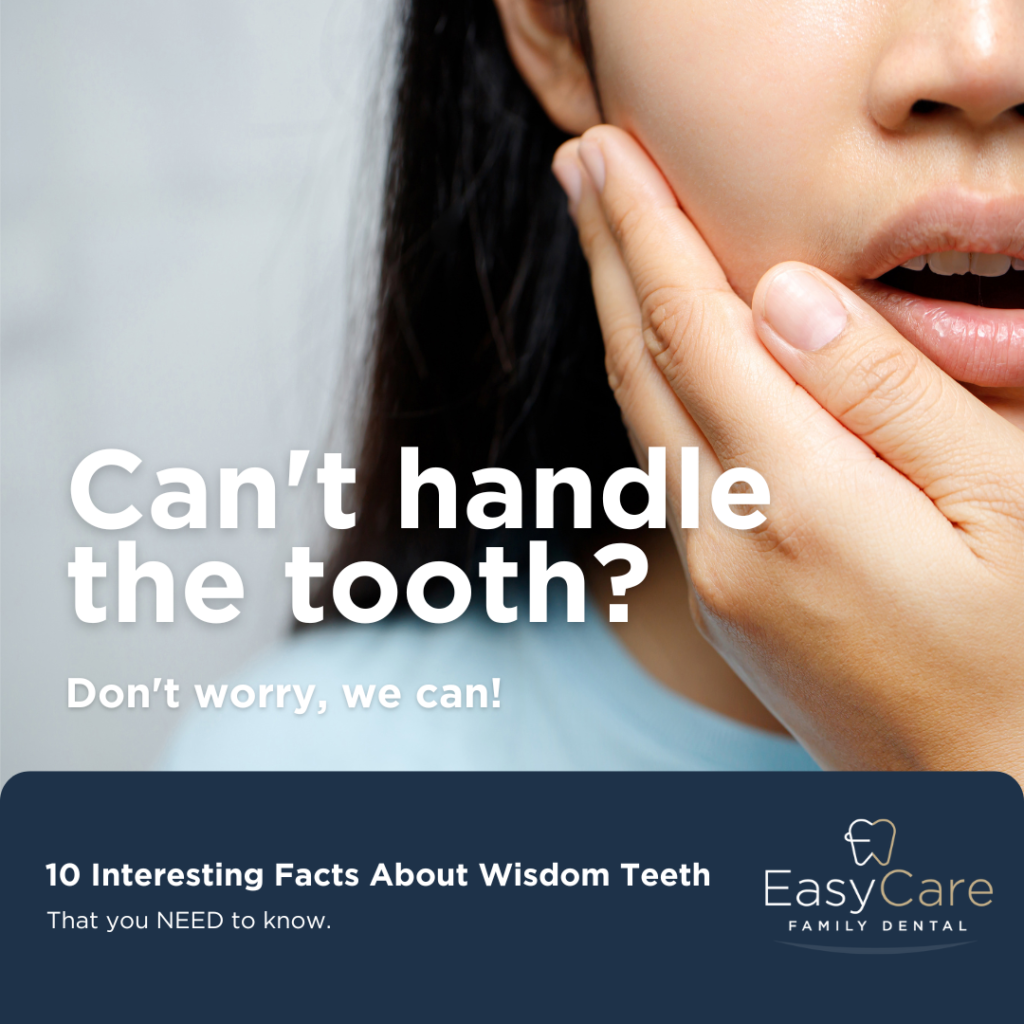Oral Health Challenges and and Solutions for Individuals with Celiac Disease
Celiac disease is a chronic autoimmune disorder where the ingestion of gluten leads to damage in the small intestine. This condition not only affects the digestive system but can also have significant implications for oral health. In this blog post, we will look at how celiac disease impacts oral health, discuss the availability of gluten-free oral care products, and provide essential information about dental treatments and procedures for individuals with celiac disease.
How Does Celiac Disease Impact Oral Health?
Celiac disease can manifest in various ways that affect oral health, including:
1. Enamel Defects
Individuals with celiac disease may experience defects in the tooth enamel, such as discoloration, pitting, or banding. These defects are often symmetrical and can affect both baby and permanent teeth.
2. Recurrent Canker Sores:
Celiac disease is associated with a higher incidence of canker sores (aphthous stomatitis), which are small, painful ulcers that can appear on the soft tissues inside the mouth.
3. Dry Mouth
Celiac disease can lead to decreased saliva production, resulting in dry mouth (xerostomia). Saliva is essential for neutralising acids, washing away food particles, and maintaining overall oral health.
4. Delayed Dental Development:
Children with celiac disease may experience delayed dental development, including delayed eruption of teeth and abnormalities in the overall structure of the teeth.
5. Increased Risk of Cavities and Gum Disease
Due to enamel defects and dry mouth, individuals with celiac disease may be at a higher risk for cavities and gum disease. It is essential to practice good oral hygiene and maintain your regular dental visits.
Are There Any Gluten-Free Oral Care Products Available for Individuals with Celiac Disease?
Yes, there are gluten-free oral care products available that are safe for those with celiac disease. Here are some types of gluten-free products to consider:
1. Toothpaste
Many major toothpaste brands offer gluten-free options. Look for products labeled as gluten-free or check the ingredient list to ensure they do not contain gluten.
2. Mouthwash
Several gluten-free mouthwash options are available on the market. Always read labels and opt for products that explicitly state they are gluten-free.
3. Dental Floss
Most dental floss is naturally gluten-free, but it’s always a good idea to verify with the manufacturer or check the packaging for any gluten-related information.
4. Medications and Treatments
If you require dental treatments involving medication, such as fluoride varnishes or sealants, inform your dentist about your celiac disease. They can ensure the products used are gluten-free.
What Should Individuals with Celiac Disease Know About Dental Treatments and Procedures?
Individuals with celiac disease should be aware of several important considerations when undergoing dental treatments and procedures:
1. Inform Your Dentist
Always inform your dentist about your celiac disease diagnosis. This information allows them to take necessary precautions and select appropriate gluten-free products for your care.
2. Check for Gluten-Free Materials
Ensure that any materials used in dental treatments, such as fillings, crowns, or orthodontic appliances, are free from gluten-containing substances.
3. Medication Awareness
If your treatment requires medication, such as antibiotics or pain relievers, ask your dentist or pharmacist to confirm that the medications are gluten-free.
4. Nutritional Considerations
Celiac disease can lead to nutritional deficiencies, such as low levels of calcium and vitamin D, which are crucial for dental health. Maintain a balanced diet and consider supplements if recommended by your healthcare provider.
5. Regular Dental Visits
Regular dental check-ups and cleanings are essential for monitoring and maintaining oral health. Early detection and intervention can prevent more severe dental issues associated with celiac disease.
Questions Individuals with Celiac Disease Might Have for Their Dentists
Here are ten common questions individuals with celiac disease might ask their dentists:
- Q: How does celiac disease affect my oral health?
- A: Celiac disease can cause dental enamel defects, mouth ulcers, and delayed dental development due to malabsorption of nutrients.
- Q: What are the signs of dental enamel defects?
- A: Look for pitted, discolored, or translucent enamel on the teeth. These defects are often symmetrical.
- Q: Can a gluten-free diet improve my oral health?
- A: Yes, adhering to a strict gluten-free diet can help reduce oral health issues by improving overall nutrient absorption.
- Q: Are there specific dental products recommended for individuals with celiac disease?
- A: Use fluoride toothpaste and consider dental products free of gluten to avoid any potential contamination.
- Q: How often should I visit the dentist?
- A: Regular check-ups every six months are recommended, but more frequent visits may be necessary if you have ongoing oral health issues.
- Q: What can I do to prevent mouth ulcers?
- A: Maintain good oral hygiene, avoid irritating foods, and ensure your diet is nutritionally balanced.
- Q: Can celiac disease cause delayed dental development in children?
- A: Yes, children with celiac disease may experience delayed eruption of teeth due to nutrient deficiencies.
- Q: How can I manage dry mouth symptoms?
- A: Stay hydrated, use saliva substitutes, and avoid tobacco and alcohol, which can exacerbate dry mouth.
- Q: Should I inform my dentist about my celiac disease?
- A: Absolutely, informing your dentist about your condition helps them tailor treatments and provide appropriate care.
- Q: Are there any specific dietary recommendations for improving oral health in celiac patients?
- A: Focus on a gluten-free diet rich in calcium, vitamin D, and other essential nutrients to support oral and overall health.
References
- Coeliac Australia: Coeliac Disease and Oral Health
- Australian Dental Association: Dental Care for Coeliac Disease
- Dental Health Services Victoria: Oral Health and Systemic Conditions
Celiac disease can pose unique challenges to oral health, but with proper care and the use of gluten-free products, individuals can maintain a healthy smile. By understanding the impact of celiac disease on oral health and taking proactive steps, you can minimise complications and enjoy optimal dental health. If you have any concerns or need personalised advice, please contact EasyCare Family Dental at 3523 3333 or visit us at Suite 103, 33 Lytton Rd, East Brisbane, QLD 4169. We’re here to provide compassionate and comprehensive dental care for all your needs.
Book your appointment today – CLICK HERE
#easycarefamilydental #dentalcliniceastbrisbane #kangaroopointdentalclinic #dentalheathbrisbane #CeliacDisease #OralHealth #GlutenFreeDentalCare #DentalTips #HealthySmile



